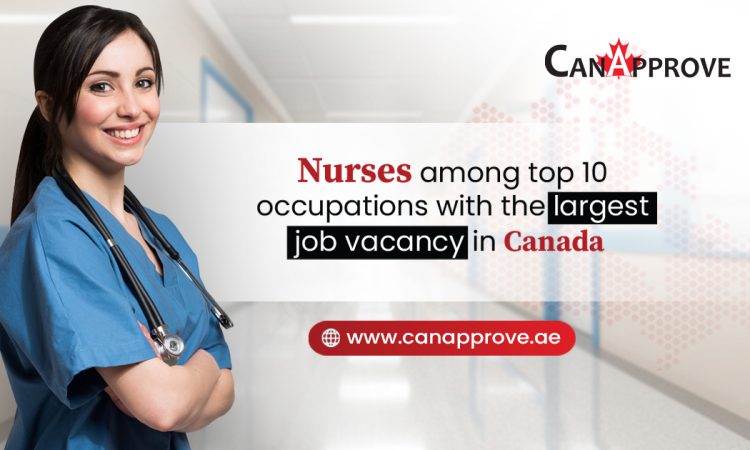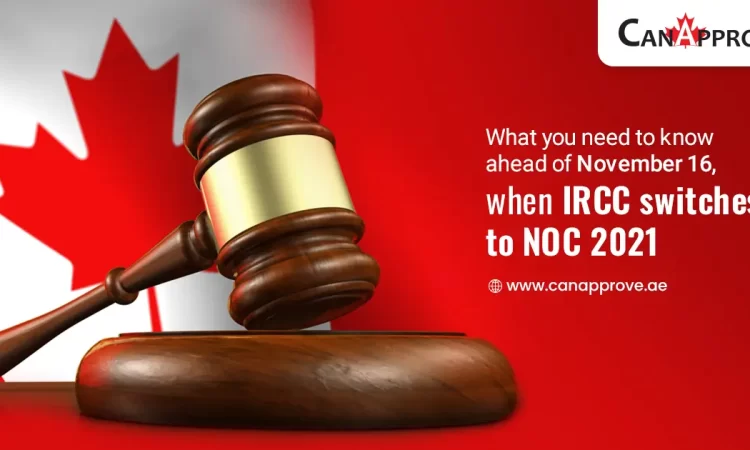Thinking about a nursing career in Canada but not sure where to begin?
Look no further! You are in the right place!
With its world-class healthcare system, diverse patient population, and numerous opportunities for professional growth, Canada has become a top destination for nurses from around the globe. The nursing shortage in Canada has been a pressing issue, with hospitals struggling to find and retain qualified nurses. As a result of this shortage, the demand for nursing professionals has increased, creating a favorable job market for aspiring professionals.
In this blog, we’ll explore the top reasons why a nursing career in Canada should be your ultimate career choice.
Let’s dive in for more details.
Why do we recommend starting your nursing career in Canada?
Throughout the COVID-19 pandemic, projections have highlighted a substantial shortage of nurses in Canada. Factors such as an ageing population, rising healthcare needs, and a growing number of retirements among current nurses fuel this shortage. The shortage is estimated to reach 60,000 nationwide by 2022 and over 117,000 by 2030. The Canadian government has increased investments in healthcare in recent years. This has led to more healthcare facilities and services being provided across the country. This high demand for nurses in Canada creates plenty of job opportunities now!
Now, let’s explore the key advantages a nursing career in Canada offers.
The Benefits Of Nursing Career In Canada
1️⃣ High-Demand Profession with Job Security: As we discussed earlier, Canada is experiencing a shortage of nurses, creating a high demand for skilled professionals. This shortage translates into job security and abundant career opportunities for aspiring nurses.
2️⃣Lucrative Salaries and Comprehensive Benefits: Nurses in Canada are well-compensated, with competitive nursing salaries and a comprehensive benefits package that includes healthcare coverage and retirement plans. This makes nursing not just a fulfilling vocation but also a financially rewarding one.
3️⃣World-Class Healthcare System: Canada boasts a universal healthcare system that ensures all residents have access to quality healthcare. As a nurse in Canada, you’ll be part of a system that prioritizes patient well-being and offers comprehensive care to everyone, regardless of their background or financial status.
4️⃣Professional Growth: Canada offers greater opportunities for nursing career advancement, allowing nurses to pursue further education and specialize in various fields. With access to continuing education programs and support for career advancement, you can take your nursing career to new heights in Canada.
5️⃣Diverse and Inclusive Work Environment: Canada’s multiculturalism is reflected in its healthcare system, providing nurses with the opportunity to work with patients from diverse cultural backgrounds. This diversity enriches the nursing profession and allows nurses to gain valuable experience in cultural competence.
6️⃣Work-Life Balance: In Canada, there is a strong emphasis on work-life balance, ensuring that nurses have time to rest and recharge outside of work. This balance is crucial for maintaining job satisfaction and overall well-being, making a nursing career in Canada truly fulfilling.
7️⃣Safe and Beautiful Environment: Canada is known for its picturesque landscapes and safe communities, offering nurses a peaceful and secure place to live and work.
Next, let’s talk about the requirements you will need to become a nurse in Canada.
Nursing Requirements in Canada
To become a nurse in Canada, you need to know the Canadian nursing regulations:
- Complete a nursing program at a recognized educational institution, such as a diploma, associate, or bachelor’s degree in nursing.
- Apply for registration with the regulatory body in the province or territory where you plan to work, such as the College of Nurses.
- Register with the National Nursing Assessment Service (NNAS) to get an Advisory Report
- Pass the licensing exam, the National Council Licensure Examination for Registered Nurses (NCLEX-RN) in most provinces, after your application is approved.
- Obtain a license to practice as a registered nurse upon passing the exam.
- Apply for jobs in hospitals, clinics, or long-term care facilities. Gain work experience in Canada to improve your chances of employment.
- Follow the requirements set by the regulatory body in the province or territory where you wish to work.
With dedication, perseverance, and the right qualifications, your nursing career in Canada can flourish, enabling you to positively impact patients’ lives and contribute to society’s betterment.
Wrapping Up
Still reading, right?! So we hope that you find this blog helpful.
So you are very enthusiastic to know more about the nursing profession’s advantages in Canada. Now what are you waiting for?! We are also very enthusiastic to help you. CanApprove is your gateway to a fulfilling nursing career in Canada. Contact us today to start your journey towards a brighter future!
Book your free appointment with an expert consultant at CanApprove to kick-start your immigration journey to Canada!
We have been providing immigration services for more than 25 years since 1998, and we provide personalized consultation, document preparation, application assistance, and ongoing support throughout the process.













